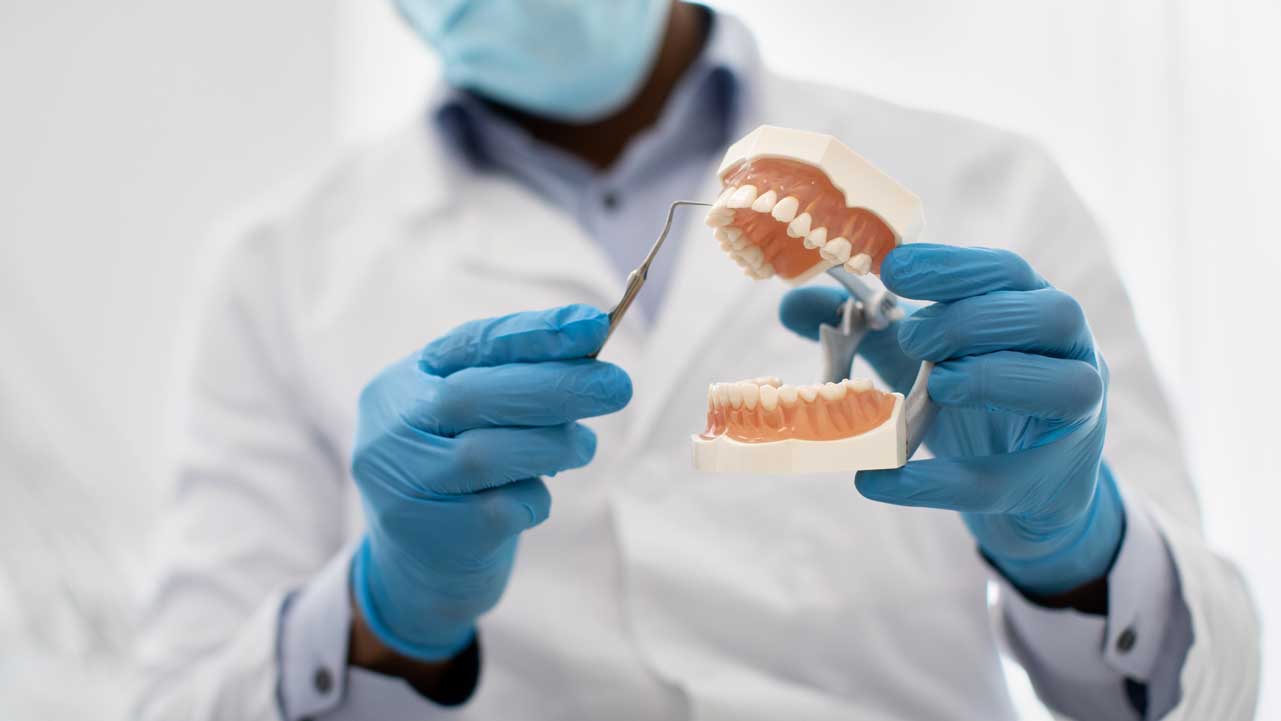Prosthetic Dentistry in Istanbul: Your Comprehensive FAQs
Understanding Prosthetic Dental Treatments
1. What is prosthetic dentistry? Prosthetic dentistry (also called prosthodontics) focuses on restoring and replacing missing or damaged teeth. To achieve this, we use artificial devices. These include crowns, bridges, dentures, or dental implants.
2. What types of prosthetic treatments exist? Prosthetic dentistry covers four major treatments:
- Crowns – These restore teeth that are damaged or weakened.
- Bridges – These replace one or more missing teeth.
- Dentures – These are partial or complete removable replacements.
- Implant-supported prosthetics – These are fixed or removable restorations anchored directly to dental implants.
3. Who needs prosthetic dentistry? Patients typically need this treatment if they have:
- Missing teeth.
- Teeth that are severely decayed or fractured.
- Tooth wear due to grinding or erosion.
- Functional or cosmetic concerns with their bite.
4. Is treatment painful? Most procedures are performed under local anesthesia. Therefore, they are not painful during the process. However, some temporary mild discomfort or sensitivity may occur afterward.
5. How long does treatment take? The timeline varies by the specific procedure:
- Crowns/bridges: 2–3 visits (or sometimes same day with CAD/CAM technology).
- Dentures: 2–4 weeks, as they require customization.
- Implant-supported prosthetics: This takes several months due to the necessary bone healing time.
Longevity, Care, and Risks of Prosthetics
6. How long do prosthetic restorations last? The longevity depends on the type of restoration:
- Crowns/bridges: They can last 10–15 years.
- Dentures: They typically last 5–10 years (though they may require occasional relining or adjustment).
- Implant-supported prosthetics: They often last 15+ years and can be permanent with proper care.
7. Are prosthetic devices comfortable? Modern prosthetics are designed for both comfort and function. Nonetheless,patients may require a short adjustment period, especially when adapting to new dentures.
8. Can prosthetics look natural? Yes, absolutely. High-quality prosthetics are carefully designed to precisely match your natural teeth. This means they align perfectly in color, shape, and function, creating a seamless smile.
9. What are the risks of prosthetic dentistry? Potential risks include:
- Gum irritation or sore spots (specifically with dentures).
- Fracture or wear of prosthetics over time.
- Poor fit if bone or gum structure changes.
- Implant-related complications if implants are involved. Despite this, choosing a qualified surgeon significantly reduces risks.
10. How do I care for prosthetic restorations? To maintain your restorations effectively, you should:
- Brush and floss daily.
- Clean dentures with dentist-recommended solutions (avoid regular toothpaste).
- Visit your dentist regularly for check-ups and adjustments.
- Avoid chewing excessively hard foods.
Additional FAQs for Patients Planning Prosthetic Dentistry Abroad (e.g., Istanbul)
Travel Planning and Clinical Standards
A. Why is Istanbul popular for prosthetic dentistry? Istanbul offers modern clinics and experienced prosthodontists. In addition, advanced CAD/CAM technology is widely available. Best of all, these services are provided at more affordable prices compared to Western countries.
B. How do I choose a safe clinic abroad? It is crucial that you:
- Verify the dentist’s prosthodontics or implantology certification.
- Ask about the quality of the materials used (e.g., zirconia, porcelain, titanium).
- Review before-and-after cases from their previous patients.
C. Do clinics in Istanbul offer all-inclusive packages? Yes, they do. These packages often include:
- Consultation & imaging.
- The prosthetic treatment itself.
- Accommodation & transfers.
- Translation or assistant services.
D. How long should I stay in Istanbul? Your required stay depends on your procedure:
- Crowns/bridges: 5–7 days.
- Dentures: 7–10 days.
- Implant-supported prosthetics: This requires two separate visits, usually several months apart.
Post-Treatment Logistics and Support
E. Is it safe to fly after prosthetic treatment? Yes. Most prosthetic procedures allow for travel in the same week. Nevertheless, for implant-supported prosthetics, you should wait a few days before flying to allow for rest.
F. How is aftercare managed once I return home? Clinics will provide detailed instructions for your prosthetic care. Moreover, many offer remote follow-ups via video call or email. You should also schedule regular check-ups with your local dentist.
G. Will language be a problem? No. Reputable Istanbul clinics always have English-speaking staff. Furthermore, they provide interpreters for other languages if needed. Therefore, communication should not be an issue.
H. What should I bring with me? For a smooth trip, consider packing:
- Previous dental records, X-rays, or scans.
- A list of all your current medications and allergies.
- Comfortable clothing for multiple clinic visits.
- A travel companion if you are undergoing complex procedures.




Reviews
There are no reviews yet.